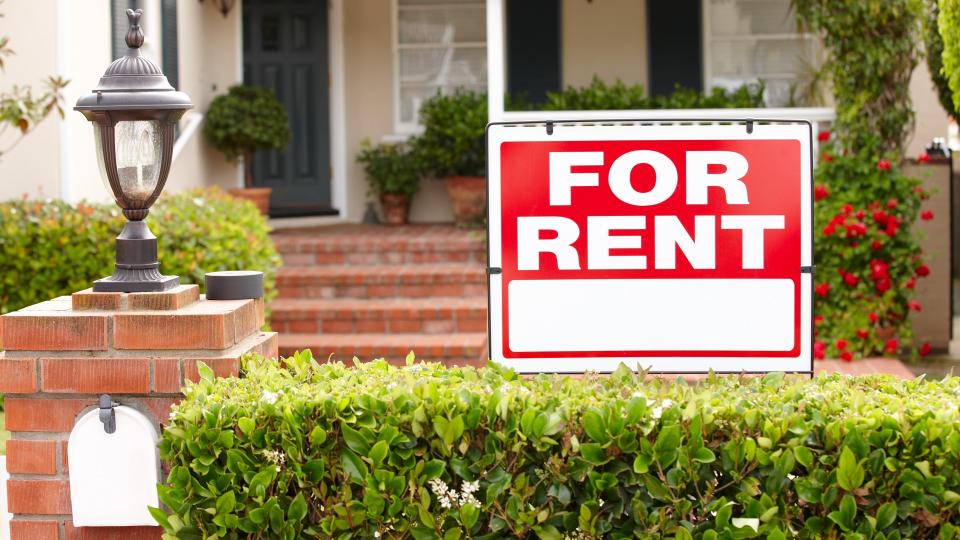Vance Cariaga Tue, January 10, 2023, 1:59 PM EST

Renting out a home is a popular form of passive income because it doesn’t require a lot of time or energy and offers various tax breaks. But it can be risky when interest rates move higher.
Many landlords rely on debt to fund their home purchases, the Wall Street Journalreported. That’s especially true at the start of 2023, with average home prices still hovering near record highs in much of the United States.- ADVERTISEMENT –
High mortgage rates make purchasing a home even more expensive — and those rates have been on a steady increase over the past year amid a move by the Federal Reserve to tame inflation through a series of interest rate hikes.
The rate on a 30-year fixed mortgage averaged 6.48% as of Jan. 5, 2023, according to Freddie Mac. That’s up from about 3% a year ago.
Home purchase costs aren’t the only ones rising. Because of high inflation, landlords also face higher costs of materials, equipment and labor needed to make repairs and maintain properties.
“Profitability, especially in the short term, certainly isn’t guaranteed,” Rick Sharga, executive vice president of market intelligence at real-estate analytics firm Attom Data Solutions, told the WSJ.
Profitability has never necessarily been easy for landlords because of the hurdles they face. As the WSJ noted, you typically need a larger down payment when applying for an investment property as opposed to a primary or vacation home. Lenders usually require at least 20% down on investment properties.
Take Our Poll: How Long Do You Think It Will Take You To Pay Off Your Credit Card Debt?
Taking out a home equity line of credit (HELOC) to help finance the purchase of a rental home is not an ideal option during this period, either. The average rate on a HELOC in January climbed to 7.24% from 6.49% a month prior, and will likely move even higher in coming months.
“Having a HELOC right now to buy a long-term rental is definitely a mistake,” Sandra Ellzey, a North Carolina homeowner who took out a HELOC last year, told the WSJ.
If the rental home you buy needs repairs and upgrades, you can expect to pay a premium these days. According to a survey from online property-management platform Avail, roughly four out of five landlords reported increased ownership costs over the past year or so, with 41% saying costs rose more than 10%.
Meanwhile, rental prices are heading south. In November 2022, the median asking rent in the nation’s 50 largest metro areas registered its tenth straight month of slower growth, according to Realtor.com. November also marked the fourth straight month of falling rents.
Being a landlord in the current market is especially risky if you end up with unexpected vacancies — something that could pose an even bigger risk if the economy goes into recession and companies start announcing layoffs. Scott Trench, CEO of real estate investing site BiggerPockets, recommended having at least one month’s rent saved in an emergency fund to help cover vacancies.
Learn: 8 Surprising Places Where Home Prices are Dropping
Find: Here’s How Much Cash You Need Stashed If a National Emergency Happens
If you’re in the market to purchase a new rental home, Chicago-based financial planner Larry Pershing told the WSJ that you should buy a property only if it will produce at least 4% of the purchase price in profit a year. If you buy a $500,000 rental property, for example, you should generate at least $20,000 a year after expenses.
More From GOBankingRates
- 40 Cities That Could Be Poised For a Housing Crisis
- How Rich Is Former President Donald Trump?
- The 10 Best Cash Back Credit Cards for 2023
- 6 Strategies for Paying Off Multiple Credit Cards
This article originally appeared on GOBankingRates.com: As Interest Rates Push Housing Prices Higher, Even Earning Passive Income from Rentals Becomes Risky
